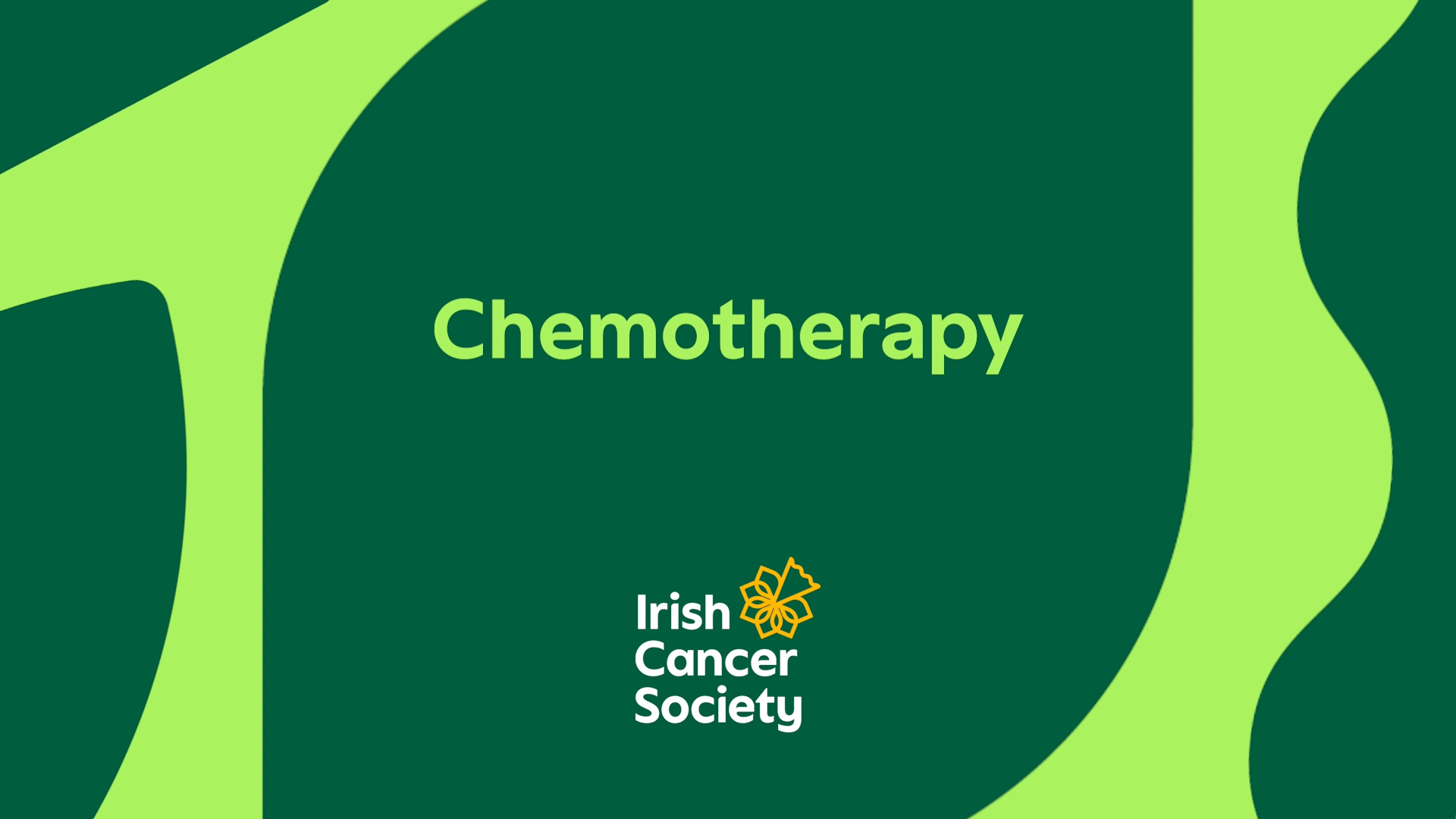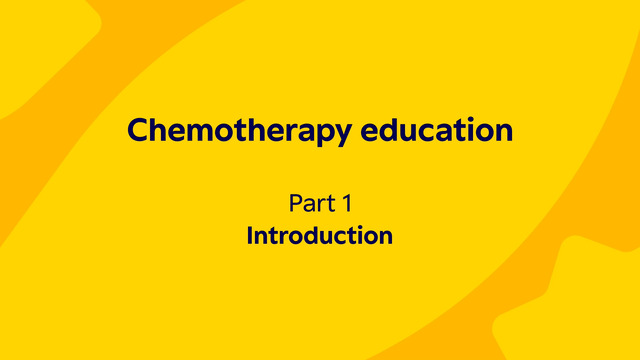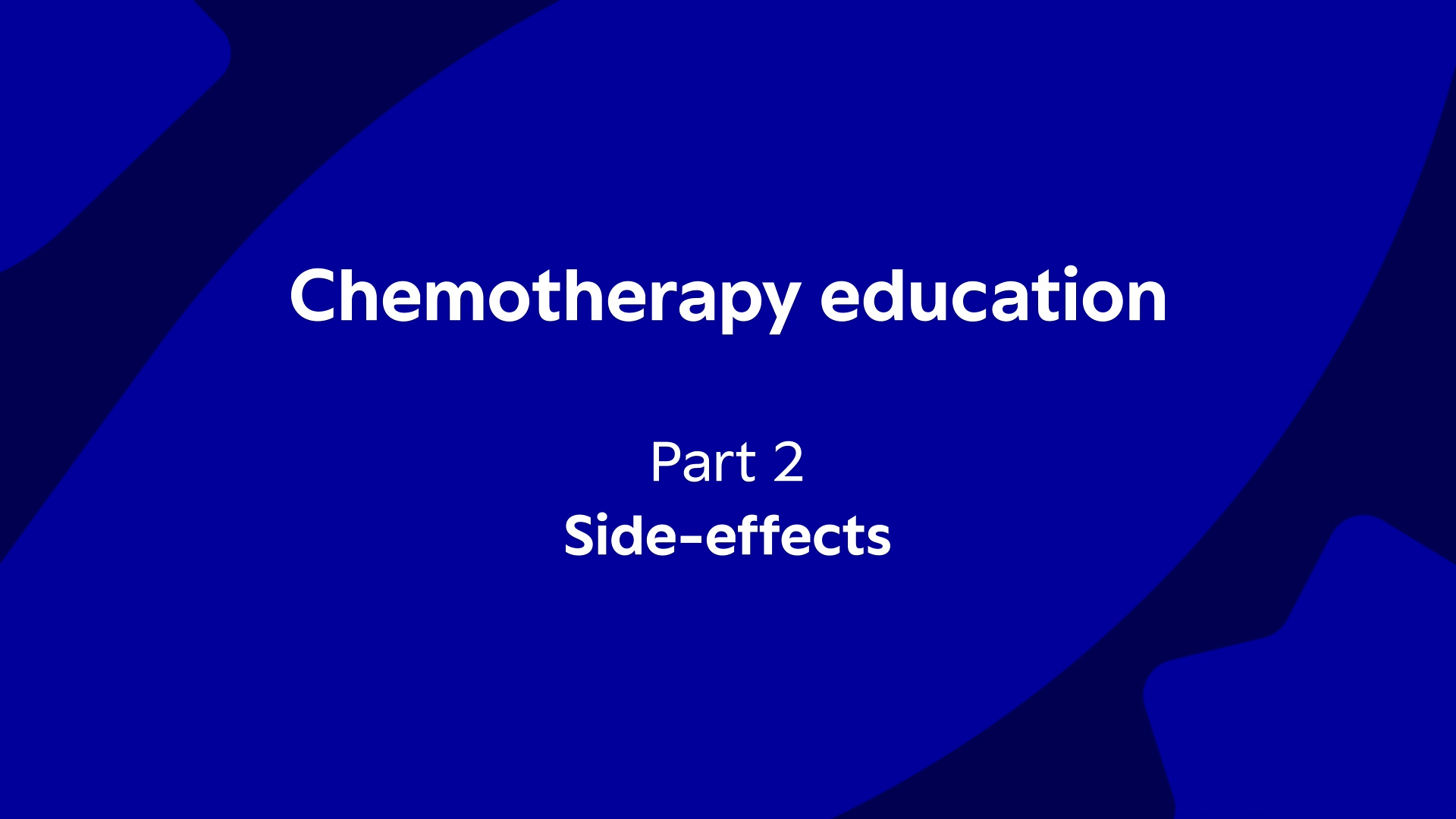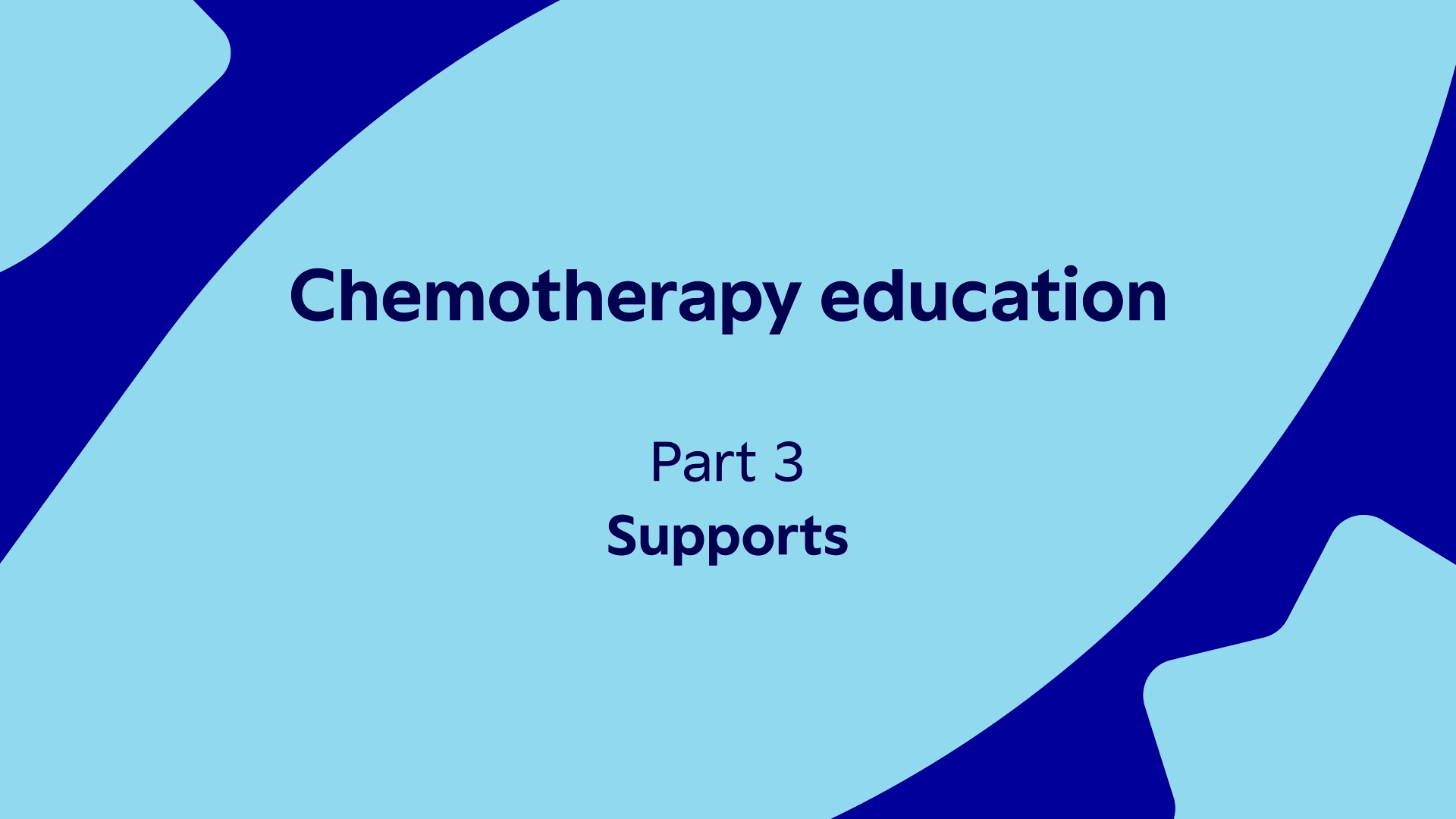Chemotherapy education Part 3: Supports
This video outlines the importance of follow-up when you have finished your treatment and explores why you might need support, and lists all the supports and services available for you.
0:07
A cancer diagnosis can bring up many emotions. Most people are shocked. You may be confused, upset and worried. There may be services available to you in your local hospital where you are receiving your treatment, that can help you cope better with cancer and its treatments.
0:22
These include dietitians, medical social workers, clinical nurse specialists, psycho-oncology services. You will need referral to these services, so ask your specialist nurse or doctor.
0:38
Your healthcare team's role does not end after treatment finishes. They will continue to play an active role in your care. You will still need to have regular check-ups to see how you're doing physically, mentally and emotionally. This is called follow-up.
0:52
It's important to go to all your follow-up appointments so your doctors and nurses can check how you're doing. It is also important to continue taking care of yourself.
1:01
Being physically and emotionally healthy may help you to feel better in yourself, reduce the impact of any side-effects, help you to manage practical matters and help you to stay as healthy as possible.
1:15
There are lots of services available to you and your family. We are here for you after treatment to support you with any side-effects, with practical and financial concerns, and with your feelings during and after cancer.
1:28
There is a programme available to you called ‘Life and Cancer Enhancing Survivorship’ designed to improve the quality of patients’ lives after active treatment has ended. To find out more about this programme, contact our cancer nurses.
1:42
You can talk to one of our cancer nurses. They can provide confidential information and advice on all aspects of cancer and its treatments, as well as practical and emotional support. They can also help you find support and refer you to our services or other services in the community.
1:58
You can speak to our cancer nurses by calling the Support Line on 1800 200 700. You can also call into one of our Daffodil Centres or you can email the nurses at supportline@irishcancer.ie
2:16
You can talk to our Welfare and Supports Team about practical and financial matters and get advice about entitlements and benefits. To do so, contact our cancer nurses and ask for a referral to a member of the Welfare and Supports Team.
2:30
Our Transport Service provides driver volunteers to transport you to and from your hospital chemotherapy treatments. Ask your hospital social worker or nurse specialist for more information about this service.
2:43
We fund professional one-to-one counselling for those who have been affected by cancer and also for partners, carers and family members. The services we provide are remote counselling nationwide by telephone or video call and in-person counselling in cancer support centres around the country.
2:59
Our cancer nurses can refer you to the counselling service in any one of the cancer support centres or to our remote counselling service.
3:07
There are many local cancer support centres across Ireland that provide patients and families with practical information and emotional support. These centres also provide such services as counselling, complementary therapies, and a drop-in service.
3:21
If you have a cancer diagnosis, you can talk with a Peer Support volunteer who has had a similar cancer journey. Peer Support is a free and confidential telephone service connecting people with similar experiences. If you're interested, contact our nurses about the Peer Support service.
3:37
If you would like any further information on all the services and supports that are available to you, remember you can contact our cancer nurses by Freephone 1800 200 700, drop in to any of our Daffodil Centres in person or by email: supportline@irishcancer.ie




